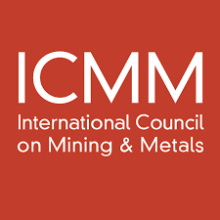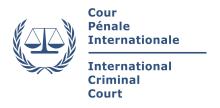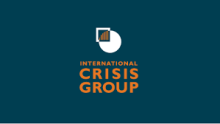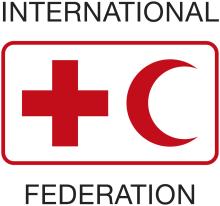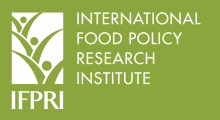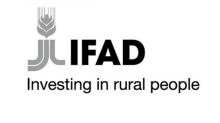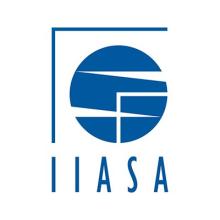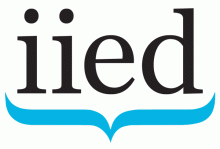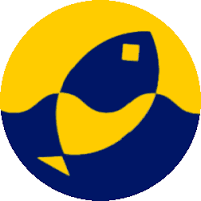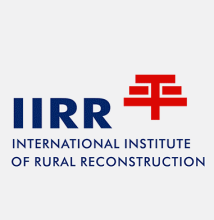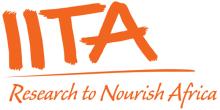The Land Library includes resources from more than 1,900 national and international information providers. Learn more about the organizations and institutions using the Land Portal to share their open-access research, data and stories.
International Council on mining and metals
ICMM is an international organisation dedicated to a safe, fair and sustainable mining and metals industry. Bringing together 26 mining and metals companies and 35 regional and commodities associations we strengthen environmental and social performance. We serve as a catalyst for change; enhancing mining’s contribution to society.
International Criminal Court Office of the Prosecutor
The Office of the Prosecutor (OTP) is an independent organ of the Court. It is responsible for examining situations under the jurisdiction of the Court where genocide, crimes against humanity and war crimes appear to have been committed, and carrying out investigations and prosecutions against the individuals who are allegedly most responsible for those crimes. It is for the first time in history that an international Prosecutor has been given the mandate, by an ever-growing number of States, to independently and impartiality select situations for investigation where atrocity crimes are or have been committed on their territories or by their nationals. Like the judges of the Court, the Prosecutor and Deputy Prosecutor are elected by the ASP for a non-renewable mandate of nine years.
International Crisis Group
Our Mission
The International Crisis Group is an independent organisation working to prevent wars and shape policies that will build a more peaceful world.
Crisis Group sounds the alarm to prevent deadly conflict. We build support for the good governance and inclusive politics that enable societies to flourish. We engage directly with a range of conflict actors to seek and share information, and to encourage intelligent action for peace.
Our work is urgently needed as the world is confronted with a dramatic rise in the number of conflicts, with devastating humanitarian, social and economic costs. Efforts to resolve conflicts are complicated by the profound shift in geopolitics, as well as the increasing prominence of non-state actors ranging from religious militants to criminal gangs.
In this more polarised, fragmented and dangerous world, Crisis Group’s work points a way forward. War is not inevitable; it is a man-made disaster. We must mobilise political leaders to heed early warnings and take early action to avoid looming conflicts. And we must build more creative and flexible frameworks for international diplomacy.
The consequences of inaction are too great:
- Over 65 million people are now displaced due to conflict and persecution - more than ever recorded.
- The majority of the world’s refugees come from three countriesdevastated by war: Syria, Afghanistan and Somalia.
- At least 70 conflicts involve non-state actors, a historic high.
- An estimated 126,059 people were killed in conflicts in 2014, the largest annual number of fatalities since the Rwandan genocide in 1994.
- The past five years have seen worsening trends across conflict indicators: more wars, more people killed and civilians increasingly targeted.
Strategic Framework
Crisis Group aspires to be the preeminent organisation providing independent analysis and advice on how to prevent, resolve or better manage deadly conflict. We combine expert field research, analysis and engagement with policymakers across the world in order to effect change in the crisis situations on which we work. We endeavour to talk to all sides and in doing so to build on our role as a trusted source of field-centred information, fresh perspectives and advice for conflict parties and external actors.
International Crops Research Institute for the Semi-Arid Tropics
The International Crops Research Institute for the Semi-Arid Tropics (ICRISAT) is an international non-profit organization that undertakes scientific research for development.
Our approach is through partnerships and with an Inclusive Market Oriented Development.
Partnerships are critical as ICRISAT takes a catalyst role to help rural communities develop their own solutions and engage
the actors needed to bring the vision to reality.
Inclusive means we are inclusive of the farmers in developing solutions and inclusive of the all people especially women and youth.
Market Oriented Development means we focus our research and development efforts on making farming profitable,
helping move farmers from subsistence to commercial operators.
International Development Law Organisation
IDLO is the only intergovernmental organization exclusively devoted to promoting the rule of law. Governments, multilateral organizations, private foundations and the private sector support our work. We are headquartered in Rome, where we were first founded, and where we continue to enjoy strong support from the Italian government. We are present in The Hague, a city whose hospitality connects us with an unrivaled legal tradition. And we are represented at the United Nations in New York and Geneva, where we help shape the debate about human rights and development.
OUR VISION IS A WORLD WHERE EVERY PERSON LIVES IN DIGNITY AND UNDER THE RULE OF LAW.
We enable countries to design, reform and strengthen those laws and institutions most apt to deliver justice, dignity and economic opportunity. We do not champion law for law’s sake: if we promote well-functioning courts, we also strive to make them accessible. For us, helping draft a national Constitution means giving a voice to the rural widow. The same emphasis on the end-user informs IDLO’s record on commercial law, intellectual property law, environmental law, and every other area of law, national or international.
IDLO HAS:
- Experience working in dozens of countries
- Expertise in institution building and legal empowerment
- A network of 2,500 experts and 47 independent alumni associations
- Knowledge of diverse legal systems
- Extensive research on rights and justice
IDLO IS:
- The only intergovernmental organization exclusively devoted to promoting the rule of law
- An international thought leader
IDLO WAS:
- Established as an intergovernmental organization in 1988
- Granted United Nations Observer status in 2001
International Development Research Centre
About IDRC
A Crown corporation, we support leading thinkers who advance knowledge and solve practical development problems. We provide the resources, advice, and training they need to implement and share their solutions with those who need them most. In short, IDRC increases opportunities—and makes a real difference in people’s lives.
Working with our development partners, we multiply the impact of our investment and bring innovations to more people in more countries around the world. We offer fellowships and awards to nurture a new generation of development leaders.
What we do
IDRC funds research in developing countries to create lasting change on a large scale.
To make knowledge a tool for addressing pressing challenges, we
- provide developing-country researchers financial resources, advice, and training to help them find solutions to local problems.
- encourage knowledge sharing with policymakers, researchers, and communities around the world.
- foster new talent by offering fellowships and awards.
- strive to get new knowledge into the hands of those who can use it.
In doing so, we contribute to Canada’s foreign policy, complementing the work of Global Affairs Canada, and other government departments and agencies.
International Federation for Human Rights
FIDH is an international human rights NGO federating 178 organizations from 120 countries. Since 1922, FIDH has been defending all civil, political, economic, social and cultural rights as set out in the Universal Declaration of Human Rights.
It acts at national, regional and international levels in support of its member and partner organisations to address human rights abuses and consolidate democratic processes. Its work is directed at States and those in power, such as armed opposition groups and multinational corporations. Its primary beneficiaries are national human rights organisations who are members of FIDH, and through them, the victims of human rights violations. FIDH also cooperates with other local partner organisations and actors of change.
OUR MANDATE: PROTECT ALL RIGHTS
The International Federation for Human Rights (FIDH) is an international NGO. It defends all human rights – civil, political, economic, social and cultural – as contained in the Universal Declaration of Human Rights.
OUR COMMITMENT: THREE PILLARS OF ACTION
FIDH acts in conjunction with its member and partner organisations. Its actions are founded on three strategic pillars: securing the freedom and capacity to act for human rights defenders, the universality of rights and their effectiveness.
International Federation of Red Cross and Red Crescent Societies
The International Federation of Red Cross and Red Crescent Societies is a worldwide humanitarian aid organization that reaches 160 million people each year through its 190-member National Societies. It acts before, during and after disasters and health emergencies to meet the needs and improve the lives of vulnerable people. It does so with impartiality as to nationality, race, gender, religious beliefs, class and political opinions.
International Federation of Surveyors (FIG)
FIG is the premier international organization representing the interests of surveyors worldwide. It is a federation of the national member associations and covers the whole range of professional fields within the global surveying community. It provides an international forum for discussion and development aiming to promote professional practice and standards.
FIG was founded in 1878 in Paris and was known as the Fédération Internationale des Géomètres. This has become anglicized to the International Federation of Surveyors. It is a UN-recognized non-government organization (NGO), representing more than 120 countries throughout the world, and its aim is to ensure that the disciplines of surveying and all who practise them meet the needs of the markets and communities that they serve.
The FIG vision
A modern and sustainable surveying profession in support of society, environment and economy by providing innovative, reliable and best practice solutions to our rapidly changing and complex world, acting with integrity and confidence about the usefulness of surveying, and translating these words into action.
The role of FIG
FIG’s activities are governed by a work plan, which is approved by the General Assembly and reviewed by Council as its tenure progresses. The current work plan with the motto “Ensuring the Rapid Response to Change Ensuring the Surveyor of Tomorrow” guides Council, Commissions, Networks and Task Force in their activities.
FIG supports the role of a prosperous and sustainable profession of surveyors to provide solution functionality, reliably, affordably for a complex and rapidly changing world that cannot wait, and to translate a sustainable development agenda into action. FIG supports international collaboration among its members for the progress of surveying in all its fields and applications. FIG has a close cooperation with United Nations relevant bodies, World Bank, and its sister associations and has been globally recognized as the leading international non-governmental organization on geospatial information and the management of “land”, the “sea” and the “built” environment. It is within the surveyors’ task to determine the size and shape of the earth, to map its surface and to manage it in a sustainable way.
International Finance Corporation
IFC, a member of the World Bank Group, is the largest global development institution focused exclusively on the private sector in developing countries.
We utilize and leverage our products and services—as well as products and services of other institutions in the World Bank Group—to provide development solutions customized to meet clients’ needs. We apply our financial resources, technical expertise, global experience, and innovative thinking to help our partners overcome financial, operational, and political challenges.
Clients view IFC as a provider and mobilizer of scarce capital, knowledge, and long-term partnerships that can help address critical constraints in areas such as finance, infrastructure, employee skills, and the regulatory environment.
IFC is also a leading mobilizer of third-party resources for its projects. Our willingness to engage in difficult environments and our leadership in crowding-in private finance enable us to extend our footprint and have a development impact well beyond our direct resources.
International Food Policy Research Institute
About IFPRI
The International Food Policy Research Institute (IFPRI) provides research-based policy solutions to sustainably reduce poverty and end hunger and malnutrition in developing countries. Established in 1975, IFPRI currently has more than 500 employees working in over 50 countries. It is a research center of theCGIAR Consortium, a worldwide partnership engaged in agricultural research for development.
Vision and Mission
IFPRI’s vision is a world free of hunger and malnutrition. Its mission is to provide research-based policy solutions that sustainably reduce poverty and end hunger and malnutrition.
What We Do
Research at IFPRI focuses on six strategic areas:
- Ensuring Sustainable Food Production: IFPRI’s research analyzes options for policies, institutions, innovations, and technologies that can advance sustainable food production in a context of resource scarcity, threats to biodiversity, and climate change. READ MORE
- Promoting Healthy Food Systems: IFPRI examines how to improve diet quality and nutrition for the poor, focusing particularly on women and children, and works to create synergies among the three vital components of the food system: agriculture, health, and nutrition. READ MORE
- Improving Markets and Trade: IFPRI’s research focuses on strengthening markets and correcting market failures to enhance the benefits from market participation for small-scale farmers. READ MORE
- Transforming Agriculture: The aim of IFPRI’s research in this area is to improve development strategies to ensure broad-based rural growth and to accelerate the transformation from low-income, rural, agriculture-based economies to high-income, more urbanized, and industrial service-based ones. READ MORE
- Building Resilience: IFPRI’s research explores the causes and impacts of environmental, political, and economic shocks that can affect food security, nutrition, health, and well-being and evaluates interventions designed to enhance resilience at various levels. READ MORE
- Strengthening Institutions and Governance: IFPRI’s research on institutions centers on collective action in management of natural resources and farmer organizations. Its governance-focused research examines the political economy of agricultural policymaking, the degree of state capacity and political will required for achieving economic transformation, and the impacts of different governance arrangements.
Research on gender cuts across all six areas, because understanding the relationships between women and men can illuminate the pathway to sustainable and inclusive economic development.
IFPRI also leads two CGIAR Research Programs (CRPs): Policies, Institutions, and Markets (PIM) andAgriculture for Nutrition and Health (A4NH).
Beyond research, IFPRI’s work includes partnerships, communications, and capacity strengthening. The Institute collaborates with development implementers, public institutions, the private sector, farmers’ organizations, and other partners around the world.
International Food Security Network
Who we are
International Food Security Network (IFSN) - a partnership of 1100+ civil society organizations (CSOs) from 31 countries across continents – strives to strengthen its regional food security networks to ensure food and nutritional security in southern countries. The network promotes south-south dialogues and knowledge dissemination and aims at influencing policies and programmes for increased food security at national, regional and international level. Twelve organizations, six regional networks and twenty six national networks spanning across the globe form the core of IFSN with Actionaid International in the lead. The network - since its formation in 2004 - has been co-funded by the European Commission.
From April 2013, IFSN entered its third phase and now working towards ensuring regular, structured and inclusive dialogues between regional and global food security networks and governments and international organisations. The network’s activities are geared further towards creating policy spaces for interaction between governments and CSOs and legislative spaces for regional frameworks on food security and nutrition, built on a human rights approach. In order to contribute to these processes the IFSN regional networks are working on developing policy positions, documenting best practices, and building institutional capacity.
IFSN - in principle - constantly focuses on south-south solidarity and brings southern and grassroots voices to different multi-stakeholder dialogues, organises farmer to farmer exchanges, and undertakes study and research. The network also actively engages with various food and nutritional security discussions at regional and global level, especially the Committee on World Food Security (CFS) and Civil Society Mechanism (CSM) in solidarity with social movements and other organisations.
IFSN constantly strives to reach out to its target people – millions of right-holders, including smallholder farmers, women, fisher-folk, forest dwellers, indigenous groups, pastoralists, consumers and their community based organizations.
International Forestry Resources and Institutions
The International Forestry Resources and Institutions (IFRI) research network examines how governance arrangements affect forests and the people who depend on them. Our goal is to carry out rigorous research that can help policy makers and forest users design and implement improved evidence-based forest policies.Click here to read more about our goals and research design.
The IFRI network is comprised of 14 Collaborating Research Centers (CRCs) located around the globe. Our researchers use a common data collection method to ensure that sites can be compared across space and time. Our unique database contains information about biodiversity, livelihoods, institutions, and forest carbon for over 250 sites in 15 countries between 1992 and the present. Click here to read more about our research themes.
The IFRI research program was initiated by Nobel Laureate Elinor Ostrom in 1992. Elinor coordinated IFRI from Indiana University for 14 years. In 2006, IFRI’s administrative center moved to the School of Natural Resources and Environment at the University of Michigan, where it is currently housed under the coordination of Arun Agrawal.
International Fund for Agricultural Development
The International Fund for Agricultural Development (IFAD), a specialized agency of the United Nations, was established as an international financial institution in 1977 as one of the major outcomes of the 1974 World Food Conference. The Conference was organized in response to the food crises of the early 1970s that primarily affected the Sahelian countries of Africa. The conference resolved that "an International Fund for Agricultural Development should be established immediately to finance agricultural development projects primarily for food production in the developing countries". One of the most important insights emerging from the conference was that the causes of food insecurity and famine were not so much failures in food production, but structural problems relating to poverty and to the fact that the majority of the developing world's poor populations were concentrated in rural areas.
IFAD's mission is to enable poor rural people to overcome poverty.
IFAD is dedicated to eradicating rural poverty in developing countries. Seventy-five per cent of the world's poorest people - 1.4 billion women, children and men - live in rural areas and depend on agriculture and related activities for their livelihoods.
Working with rural poor people, governments, donors, non-governmental organizations and many other partners, IFAD focuses on country-specific solutions, which can involve increasing rural poor peoples' access to financial services, markets, technology, land and other natural resources.
International Initiative for Impact Evaluation
3ie funds impact evaluations and systematic reviews that generate evidence on what works in development programmes and why.
3ie is an international grant-making NGO promoting evidence-informed development policies and programmes. We are the global leader in funding and producing high-quality evidence of what works, how, why and at what cost in international development. We believe that better and policy-relevant evidence will make development more effective and improve people’s lives.
Since its founding in 2008, 3ie has awarded over 200 grants (146 impact evaluations, 33 systematic reviews and 38 other studies) in over 50 countries, with a total value of US$84,225,205.
3ie has offices in New Delhi, London and Washington, DC. The three main funders of 3ie are the Bill & Melinda Gates Foundation, UKaid through the Department for International Development and the William and Flora Hewlett Foundation.
International Institute for Applied Systems Analysis
The International Institute for Applied Systems Analysis (IIASA) is an international scientific institute that conducts research into the critical issues of global environmental, economic, technological, and social change that we face in the twenty-first century.
Our findings provide valuable options to policymakers to shape the future of our changing world. IIASA is independent and funded by prestigious research funding agencies in Africa, the Americas, Asia, Europe, and Oceania.
International Institute for Democracy and Electoral Assistance
Our Mission
"To support sustainable democratic change through providing comparative knowledge, and assisting in democratic reform, and influencing policies and politics"
Our approach
We believe that democracy is a universal human aspiration and an experience that is pursued and lived in different ways around the world. It comes in multiple forms. These forms are in constant evolution. There is no single and universally applicable model of democracy. There is no end point in improving democracy. Fundamentally, democracy is a system in which the government is controlled by the people and citizens are considered equals in the exercise of that control. Beyond the basic tenets of citizens’ choice and citizens’ political equality, the critical choices are best made and the quality of democracy is best gauged by those directly concerned: the citizens themselves. We systematically nurture an open and pluralistic understanding of democracy. This is respectful of the national context, and is in line with our non-prescriptive and non-intrusive approach, as well as with the priorities set by national actors.
Comparative knowledge on democracy
We capture diverse experiences of democracy from the around globe. We assess their potential relevance across countries and regions to incorporate them into our expanding body of comparative knowledge on democracy. In the development of comparative knowledge, we explore the challenges to democratization posed by undemocratic regimes. We support and conduct research in areas that are highly relevant for policymaking or reform processes.
We seek to provide decision makers with accurate information on existing options and their likely implications. We make comparative experiences available to actors across the political and institutional spectrum. This facilitates inclusive processes in which political will for change can emerge. This enables us to help actors to address challenges presented by trends that may adversely impact on and threaten democracy. Through this we are also able to better understand and capture how economic dynamics and technological change affect democracy.
Our efforts to support democratic change build on our convening potential. We facilitate dialogue at the country, expert and international levels.
- At the country level, we engage at the request of governments, parliaments or constitutional/electoral bodies. As a convener and facilitator of dialogue at the country-level, we make knowledge-based policy options available to actors in national reform processes.
- At the expert level, we convene dialogues in order to improve the design and implementation of politics in support of democracy. This enables us to test and pilot the instruments and tools of such new policies.
- At the international level, we engage in multilateral forums and initiatives to build global understanding and synergies on key democracy issues. This enhances the focus on democracy building within the broader international agenda, particularly peace building and state building.
International Institute for Environment and Development
Mission
Our mission is to build a fairer, more sustainable world, using evidence, action and influence in partnership with others.
Who we are
IIED is one of the world’s most influential international development and environment policy research organisations. Founded in 1971 by economist Barbara Ward, who forged the concept and cause of sustainable development, we work with partners on five continents. We build bridges between policy and practice, rich and poor communities, the government and private sector, and across diverse interest groups. We contribute to many international policy processes and frameworks, including the Intergovernmental Panel on Climate Change, the Millennium Ecosystem Assessment and the UN conventions on climate change and biological diversity.
What we do
IIED carries out research, advice and advocacy work. We carry out action research — generating robust evidence and know-how that is informed by a practical perspective acquired through hands-on research with grassroots partners — and we publish in journals and maintain high research standards. We advise government, business and development agencies, and we argue for changes in public policy. We focus on bottom-up solutions, stay open to flexible, adaptable solutions and are marked by a tradition of challenging conventional wisdom through original thinking.
International Institute for Land Reclamation and Improvement
The International Institute for Land Reclamation and Improvement -ILRI- was founded in 1955 as an independent, non-profit-making institute under the Netherlands Ministry of Agriculture, Nature Management, and Fisheries, with the mandate to collect and disseminate knowledge for better, and sustainable, use of land and water resources, especially in developing countries.
In performing its mandate, ILRI's core activities are:
- to undertake applied research on the sustainable development of irrigated agriculture and the results of such research are published in the series of ILRI publications and in papers, scientific journals, and conference proceedings;
- to hold annual, post-graduate training courses on irrigation, drainage, and related subjects;
- to provide technical support and specialist advisory services to irrigation and drainage projects abroad.
Since 1960, ILRI has been conducting annual post-graduate courses on irrigation and drainage for scientists and field engineers in mid-career. ILRI presents its courses in such a way that participants can easily apply what they have learned directly upon their return to their home country.
ILRI offers three types of courses:
- Annual courses on the core activities of the Institute. The longest running of these courses is the International Course on Land Drainage. More than one thousand drainage professionals from all over the world have participated in it since the first session in 1962; - Tailor-made courses that meet the specific training needs of groups of engineers, either at ILRI or in the home country. ILRI works with local research institutes, consultancy firms, and Government agencies to develop the content of these courses and attune it to the local situation and conditions;
- Train-the-trainer courses that teach junior engineers and staff of counterpart organizations the skills they need to develop, plan, and present their own tailor-made courses.
International Institute for Sustainable Development
Established in 1990, IISD is an independent, non-profit organisation that provides practical solutions to the challenge of integrating environmental and social priorities with economic development. We report on international negotiations, conduct rigorous research, and engage citizens, businesses and policy-makers on the shared goal of developing sustainably.
The institute has offices in Canada, Switzerland and the United States, and operates in over 70 countries around the world. As a registered charitable organization in Canada, IISD has 501 (c) (3) status in the U.S. IISD receives core operating support from the Government of Canada, as provided through the International Development Research Centre (IDRC) and the Province of Manitoba. The institute also receives project funding from numerous governments inside and outside Canada, United Nations agencies, foundations and the private sector.
Our 2014-2019 Strategic Plan builds upon IISD’s core strengths in advancing integrated, multidisciplinary and leading-edge perspectives and real-world solutions to sustainability. The strategy consolidates different IISD work streams in a focused and integrated manner. A core purpose of the strategy is to build a single, coherent institution capable of providing integrated and holistic solutions to sustainability challenges. Our brochure provides a snaphot of IISD's strategy and the work of our programs.
International Institute of Fisheries Economics and Trade - Oregon State University
The International Institute of Fisheries Economics & Trade (IIFET) is a global organization consisting 700+ members from over 65 countries around the world.
IIFET provides an international forum for the exchange of research, information, and ideas on the economics of fisheries management, seafood trade, and aquaculture.
Our goal is to advance the productive use of economic theory and analysis to answer critical questions surrounding the sustainable use of marine resources and to ensure future livelihoods of those who produce food from the sea.
IIFET members represent a wide and global diversity of perspectives on economic issues touching on the use and development of fisheries and aquaculture sectors, from international, national, and regional governments and agencies, industry and trade organizations, and academia. Not only economists, but also those involved in developing and implementing policies governing fisheries resources, together with those who experience these policies' effects in the marketplace, are encouraged to participate. Material presented at our conferences ranges from the applied to the theoretical, with all welcome to propose their work for scientific review and presentation.
Please explore the links (left and below) to discover more about our activities and institutional history, become a member, or to meet us at one of our outstanding international biennial conferences at fascinating international sites.
International Institute of Rural Reconstruction
We have over 95 years of experience in empowering communities to overcome poverty. Led by our founder Dr. Y.C. James Yen, since early 1920s, our predecessor the Chinese Mass Education Movement was responsible for changing, for better, and the lives of over 200 million Chinese peasants through the power of functional literacy. Since IIRR was formally organized as an international development, training, and research organization in 1960 in the Philippines, we have continued to empower the rural poor to end poverty in Asia, Africa and Latin America.
We use innovative approaches that are integrated, people-centered and sustainable; the process we pioneered since early 20’s when these concepts were little known to development community. This philosophy of development guides all our work; we do not offer handouts. We offer education and capacity building so that community members and their local organizations can enact changes relevant to them. Our core tenet at IIRR is to develop sustainable and effective solutions to poverty reduction by working with and learning from local communities. We believe in “outsiders can help, but insiders must do the job”.
We have strong anti-poverty programs in eight (8) countries in Southeast Asia (Philippines, Cambodia and Myanmar) and Eastern and Southern Africa (Kenya, Ethiopia, Uganda, South Sudan and Zimbabwe). In these countries and regions, we work in collaboration with more than 125 local development partners, and all our 140 staff members are nationals of these countries.
We are a United States-based 501(c) (3) private voluntary organization with a small office in New York City, but we operate our headquarters from the global south, the Philippines. These are the deliberate choices we made to be closer to the people we work with and which make our work relevant and cost effective.
International Institute of Social Studies
The International Institute of Social Studies (ISS) in The Hague is part of the Erasmus University Rotterdam (EUR).
It is a graduate institute of policy-oriented critical social science, founded in 1952 and able to draw on sixty years of experience.
ISS is a highly diverse international community of scholars and students from the global south and the north, which brings together people, ideas and insights in a multi-disciplinary setting which nurtures, fosters and promotes critical thinking and conducts innovative research into fundamental social problems.
Key to the ISS philosophy and practice is the wish to make a contribution to achieving social justice and equity on a global level. The strong partnerships with organizations and individuals in developing countries make up a network in which the co-creation of knowledge and an integrated approach to research and teaching can flourish and remain societally relevant.
ISS shares expertise with a wider public by providing high-level policy advice, serving as a platform for debate and the exchange of ideas and engaging in consultancy.
International Institute of Tropical Agriculture
The International Institute of Tropical Agriculture (IITA) is a non-profit institution that generates agricultural innovations to meet Africa’s most pressing challenges of hunger, malnutrition, poverty, and natural resource degradation. Working with various partners across sub-Saharan Africa, we improve livelihoods, enhance food and nutrition security, increase employment, and preserve natural resource integrity.
“To offer leading research partnership that facilitates agricultural solutions to hunger, poverty, and natural resource degradation throughout sub-Saharan Africa.”
IITA’s mission is to assure food security for some of the world’s poorest people and provide them with viable strategies that create real, long-term results for economic development and community stability, while building an ecologically sound future that takes into account the issues of climate change. At IITA, we are dedicated to alleviating these problems and working to transform agriculture in Africa.
“The lead research partner facilitating agricultural solutions to overcome hunger and poverty in the tropics.”
IITA sees a bright future for Africa. We see a continent that can become a world leader in agriculture and sustainability. We understand that Africa needs a proactive CGIAR-supported Center that is closely linked to the demands of this continent. Our core beliefs and strategy reflect this.
In line with the new CGIAR, IITA is focused on four System-Level Outcomes described in the Strategic Results Framework.
IITA will advance these System Level Outcomes within five impact zones in sub-Saharan Africa by increasing major staple food yields in target R4D regions by two-thirds. Focusing on cassava, yam, maize, banana and plantain, soybean, and cowpea is the fastest and easiest way to impact farmers and increase the average farm income by half. As rural, farming communities in Africa are among the poorest in the world, these increases will lift over 11 million Africans or almost a fifth of households above the poverty line. Our vision of the future sees the region’s farms commit to restoring natural resources and sustainable farming practices for seven and a half million hectares of degraded farmlands, conserving them for future generations of farmers and food producers.
Mission
Vision
International Islamic University Malaysia
The IIUM Vision :
IIUM aims to become a leading international centre of educational excellence which seeks to restore the dynamic and progressive role of the Muslim Ummah in all branches of knowledge and intellectual discourse.
The summary of the Mission should read as follows:
- Integration;
- Islamization;
- Internationalization; and
- Comprehensive Excellence
International Journal of Advance Technology and Engineering Research
INTERNATIONAL JOURNAL OF ADVANCE TECHNOLOGY AND ENGINEERING RESEARCH is devoted to the publication of high quality papers on theoretical as well as practical developments in all engineering disciplines. Original research papers, state-of-the-art reviews and technical notes are invited for publication.
IJATER is blind peer reviewed international journal publishing paper that emphasizes research, development and application within the fields of new engineering and technology. The IJATER covers all areas of Engineering and Technology, publishing original research articles.
Affiliations
IJATER(ISSN 2250–3536 (Online))is approved by National Science Library (NSL), National Institute of Science Communication And Information Resources (NISCAIR), Council of Scientific and Industrial Research, New Delhi, India
International Journal of Current Research
International Journal of Current Research, (IJCR) is an international double blinded referred and peer-viewed monthly online academic research journal in all the streams. IJCR encourages new ideas and works in all the fields and it publishes high-quality original papers, theory-based empirical papers, review papers, case reports, conference reports/papers, technology reports, book reviews, commentaries, events, and news. We welcome papers from both academicians and practitioners on theories, business models, conceptual paradigms, academic research, and consultancy projects. All subject areas of Biology and life sciences: Agriculture, Anatomy, Astrobiology, Behavior, Bioacoustics and etc., Computer and Information Sciences: Artificial intelligence, Catalogs, Computer applications, Computer architecture, and etc., Earth sciences: Atmospheric science, Earth, Geochemistry, Geography, Geology and etc., Ecology and environmental sciences: Aquatic environments, Biogeochemistry, Biogeography, Bioindicators, Conservation science and etc.,Engineering and technology: Aerospace engineering, Architectural engineering, Automotive engineering, Bioengineering, Chemical engineering and etc., Medicine, health sciences and Dental: Anatomy, Anesthesiology, Cardiology, Cardiovascular medicine and etc.,People and places: Demography, Geographical locations, Population groupings and etc., Physical sciences: Astronomical Sciences, Chemistry, Materials science, Mathematics, Physics and etc., Research and analysis methods: Animal studies, Bioassays and physiological analysis, Biological cultures and etc.,Science policy: Bioethics, Open science, Research funding and etc., Social sciences: Anthropology, Archaeology, Economics and etc. Authors are cordially invited to submit the full-length paper, Original and unpublished research articles, based on theoretical or experimental works, are solicited for publication in the journal. Submission of an article implies that the work described has not been published previously (except in the form of an abstract or academic thesis) and is not under consideration for publication elsewhere.
International Journal of Engineering & Technology
The aim of the International Journa l of Engineering &Technology (IJET) (ISSN 2227-524X) is to provide fast publication of refereed, high quality original research papers in all areas of engineering and technology. The journal covers following disciplines:
- Electrical, Electronics and Computer Engineering
- Information Engineering and Technology
- Mechanical, Industrial and Manufacturing Engineering
- Automation and Mechatronics Engineering
- Material and Chemical Engineering
- Civil and Architecture Engineering
- Biotechnology and Bio Engineering
- Environmental Engineering
- Petroleum and Mining Engineering
- Marine and Agriculture engineering
- Aerospace Engineering
International Journal of Engineering and Advanced Technology
International Journal of Engineering Research & Technology (IJERT) – registered with ISSN: 2278-0181 , is a peer-reviewed, Open Access journal that publishes original research articles as well as review articles monthly – emphasize all major engineering and science aspects that can equally serve all branches of engineering and science discipline.
Established in 2012, IJERT has effectively utilized automated plagiarism tool for the detection of the quality of all submitted articles in initial review stage. For any submitted manuscript, plagiarism including content, author name, affiliation and references is automatically rejected.
International Journal of Environment, Agriculture and Biotechnology
International Journal of Environment, Agriculture and Biotechnology (IJEAB) is a peer reviewed open access online international journal in the field of Environment , Agriculture and Biotechnology. It’s main aim is to give quality research papers. It covers all sub-fields of above mentioned fields. Submitted paper should meet some criteria like, It should be original, unpublished and not submitted to any other journal.
The IJEAB is an progressively vital journal for the development of Environment, Agriculture and Biotechnology theory and practice. The primary audience of this publication includes academics, graduate students, practitioners and all others curious about Environment, Agriculture and Biotechnology analysis. The journal welcomes and encourages articles from each practitioners and academics.

